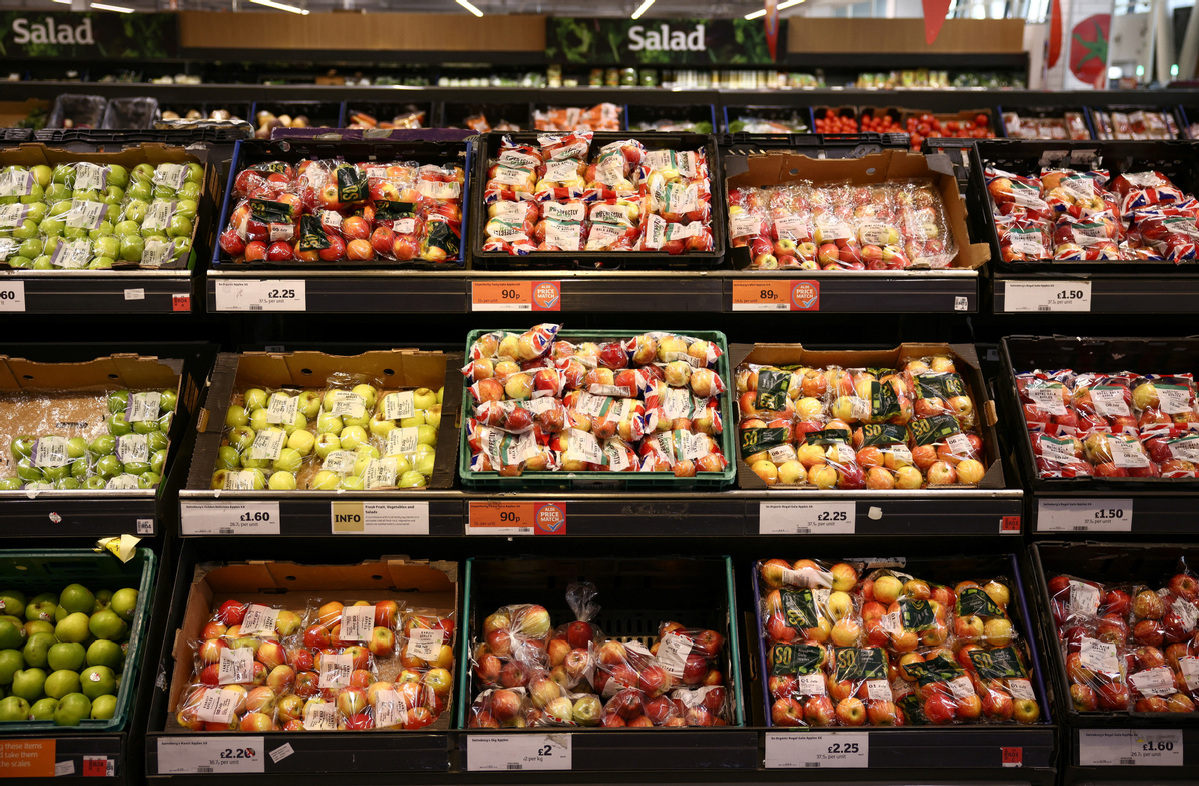Global inflation may have peaked, October data is 'high water mark'
By JULIAN SHEA in London | China Daily Global | Updated: 2022-11-29 09:54

New data published by the Financial Times has indicated that the rampant inflation that has affected so many global economies this year may have reached its peak, and that an easing up of factors like supply chain issues could see it come down in the months ahead, to the relief of householders, businesses, and central banks.
In October, inflation across the 19-member eurozone reached 10.7 percent, up from 9.9 percent the month before, largely as a result of a 41.9 percent increase in energy costs.
Despite the Bank of England's target of 2 percent, the United Kingdom's inflation rate for the same month was 11.1 percent — its highest level for 41 years.
The United States' Federal Reserve also has a 2 percent goal. And in October, the reality was a relatively more encouraging 7.7 percent, down from 8.2 percent the previous month.
Mark Zandi, a chief economist at Moody's Analytics, told the FT that inflation was "likely at its apex "now, with October's figures being a "high water mark" and that the easing of price pressures should "presage the coming moderation in consumer prices".
The more optimistic outlook backs up the comments of Kristalina Georgieva, managing director of the International Monetary Fund, at the recent COP27 climate summit in Egypt, where she told Bloomberg that "it is very possible that we are peaking".
Top priority
"We now see central banks very united on fighting inflation as a top priority, and rightly so," Georgieva said. "If we don't succeed, it would de-anchor and then the foundation for growth which is price stability is dented."
Jennifer McKeown, a chief global economist at Capital Economics, told the FT that she thought high energy costs this year, which have been severely impacted as a consequence of the Russia-Ukraine conflict, should calm down in the new year.
"Our estimate is that food and energy effects together will knock about 3 percentage points off headline consumer price inflation in the advanced economies, on average, over the next six months," she said.
Even if the situation does ease, however, its consequences will remain, with the Organisation for Economic Co-operation and Development, or OECD, warning that it was one of several factors that would have a severe impact on global growth this year and the coming year, with growth this year estimated to be just 3.1 percent, compared to 5.9 percent last year.
"It is true we are not predicting a global recession," OECD Secretary-General Mathias Cormann said. "But this is a very, very challenging outlook."
Much of the growth that is expected next year is forecast to come from Asia.
While economies in Europe and the United States continue to limp along, around three-quarters of growth will be generated in Asia, with the economy of India tipped to expand by 6.6 percent this year, and 5.7 percent next year.























